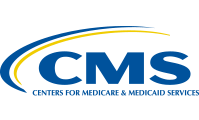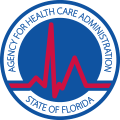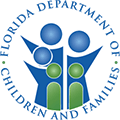North Tampa Behavioral Health is a leading treatment center for individuals struggling with self-harm. Located in Wesley Chapel, the expert staff at North Tampa provides lasting recovery through holistic care and comprehensive programming.
Treatment for Self Harm
Learn More About Treatment for Self Harm in North Tampa
Self-harm, also known as self-injury or “cutting,” is an unhealthy way of coping with deeply rooted problems and emotions that may feel overwhelming. The problem is that if you self-injure, the relief you get from the intentional harm doesn’t last very long and never addresses the underlying problem. In fact, it causes more problems than it solves. If you cut, you’re probably keeping your behaviors a secret which can only increase your burden and make you feel even more alone, trapped, and frightened. At North Tampa Behavioral Health Hospital, we understand what may make you hurt yourself intentionally. We’ve helped countless men and women just like you successfully recover from self-harm and go on to lead happy, normal, and productive lives. It’s time to let us help you.
Helping a Loved One
How to Convince a Loved One to Seek Treatment for Self Harm
If your loved one is harming themselves, you may feel powerless and hopeless – as though there’s nothing you can do to help. The strain of loving someone who hurts themselves can greatly impact family dynamics and relationships within the family, leading to additional stress, strife, and chaos. While you may feel alone in your fears, you can help your loved one begin to heal from self-injury.
Before you approach the topic, be sure to learn as much as you can about the signs & symptoms of self-injury, the motivations behind it, triggers for it, and underlying mental health conditions that may accompany this disorder. This allows you to be the advocate your loved one desperately needs. Research inpatient treatment centers in Tampa that deal with self-injury and see which one would work best for your loved ones.
Learn to cope with your own feelings about the matter. You probably feel shocked, angry, confused, and guilty and you must first learn to accept your feelings before approaching the subject with your loved one.
Offer loving support in tangible ways and avoid issuing ultimatums. Of course you want your loved one to stop self-injuring, but it’s not as simple as a matter of willpower. Offer loving guidance and care, promising that you’ll always be there for your loved one in any way they need. Make sure you are able to be there for them.
Gently guide them into treatment. Offer to make an appointment with a general practitioner or psychologist and drive your loved one to the appointment. Offer to take notes and ask for practical suggestions from the physician. Encourage your loved one to tour a psychiatric and mental health treatment center in Tampa that specializes in self-injury so that they can alleviate some of the fears they may have.
Why Consider Us
Why Consider Inpatient Treatment at North Tampa Behavioral Health
If you’ve been hurting yourself on purpose, burning your skin, swallowing poison, or cutting areas of your body in an effort to release emotional pain, you’re at serious risk of doing major damage to yourself. What may have begun as an occasional release may have become an addiction, something you feel compelled to do against all logic and feel powerless to stop. You may feel ashamed of your behavior and go to any length to hide what you’ve been doing to hurt yourself. This may have led you to drop out of once-enjoyed activities, avoid loved ones and friends, and spend increasing amounts of time alone, hiding your behaviors. This may lead you to feel so alone in your struggles, which may lead to greater feelings of anger, shame, disgust, and shock. You’re not alone; many people have successfully recovered from self-injury and self-harm and gone on to live happy and healthy lives.
Clearly, self-injury is a means to cope with highly distressful situations and emotions and it has served its purpose. A self-harm treatment center can help you identify the triggers for your self-injury and teach you proper ways to cope with your emotions and distress. It’s been shown that the best way to handle the emotions that trigger self-injury is an inpatient treatment in which you are able to avoid the stresses of daily life and focus upon your recovery. You’ll have the opportunity to explore the reasons behind self-injury and focus on learning more appropriate coping mechanisms.
Philosophy and Benefits
Our Rehab Program’s Philosophy and Benefits
When you first come to our self-harm & mental health hospital, we’ll be sure to place you in the least restrictive of our treatment tracks that will still provide you with the opportunity to heal and recover from self-injury.
North Tampa Behavioral Health Hospital offers an eclectic approach to treatment of our patients. Instead of focusing solely upon the symptoms of the disorder, we work to explore to the whole person and address all of your needs – mind, body, and spirit. You’ll take an active role in your recovery from self-injury, and we’ll be behind you every step of your recovery. We’re a holistic self-harm treatment center that approaches patient care as an individual journey that we will take together. Our highly trained staff has helped countless men and women who self-injure learn more appropriate coping mechanisms, develop relapse prevention strategies, and learn, grow, and heal. At North Tampa Behavioral Health Hospital, we’re committed to the one thing that matters most – you.
Types of Therapy
Types of Therapy We Use to Treat Self Harm
When you come to our self-harm treatment center for psychiatric care, you’ll first undergo a series of evaluations so we can provide the most appropriate treatment plan for your unique needs. Our medical examination will allow us to diagnose any medical complications that have been brought about by self-injury and begin to address these concerns. Our psychiatric evaluation will allow us to gain a better understanding into the reasons behind your self-injury.
Medication may be used at the beginning of your stay at North Tampa to help manage unpleasant symptoms. Some people may only be on medication during the first part of their recovery while others may need long-term medication management to address any co-occurring disorders. The usage of medication will be based upon the recommendations of your treatment team.
North Tampa Behavioral Health Hospital is very proud of the diverse types of group therapy we offer as we’ve found that group therapy is a very important way for people who are struggling to overcome self-injury to connect with others facing similar problems. Through group, you’ll be able to bond with others and grow, learn, and heal from one another. We offer process groups that offer you the chance to process your emotions about a particular subject and psycho-educational groups that are designed to teach you more about your self-injury, medications, and triggers.
During the recovery process at our mental health treatment center, family is an important part of the recovery process for people who self-injure and their support is vital during this time. We’ll offer family sessions to allow your loved ones the opportunity to express the ways in which your self-injury has affected them and teach them more about self-injury. We’ll also connect your loved ones with community resources in Tampa and elsewhere to promote continued healing.
Continuing Care
Continuing Care – What Comes Next?
As your time with us draws to a close, you’ll work closely with your treatment team to determine the best aftercare options for your continued recovery. If you feel you’d benefit from a similarly structured environment, a residential treatment center may help you. If you’d like to continue intensive therapy on an outpatient basis while slowly re-acclimating to your life, a Partial Hospitalization Program (PHP) or Intensive Outpatient Program (IOP) may be a better fit. Some people find that they’ve made enough progress in our healing center that they are ready to return home. In this case, we will refer you to traditional outpatient therapy and available community resources.











